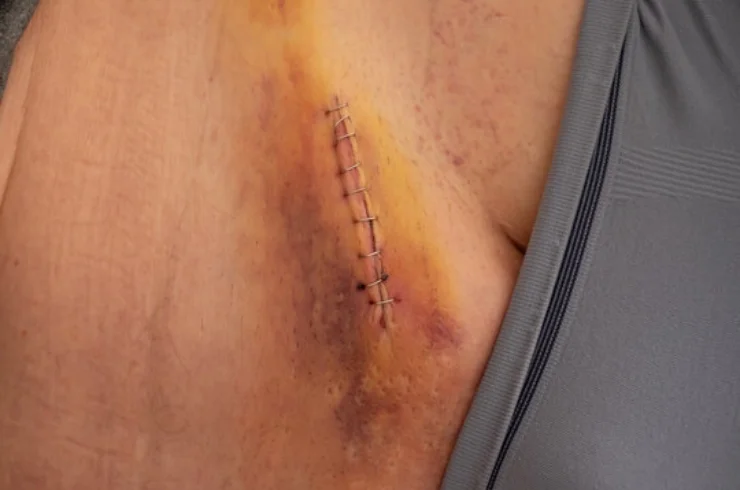
A recurrent hernia occurs when a hernia returns after a previous repair, often due to weak tissue, inadequate healing, or excessive strain on the repair site. Dr. Adarsh M Patil, a leading Consultant Laparoscopic Surgeon, specializes in advanced revision hernia surgeries, ensuring durable, long-term success for patients dealing with recurring hernias.
🔹 Weak or Damaged Tissue – Some patients have naturally weak connective tissues.
🔹 Improper Healing – Incomplete healing after the first surgery can lead to recurrence.
🔹 Obesity & Smoking – Increases stress on the repair and slows healing.
🔹 Strenuous Activity Too Soon – Lifting heavy objects before complete recovery.
🔹 Surgical Technique & Mesh Issues – Poor placement or low-quality mesh.
✔ Bulge at the Previous Surgery Site – Often noticeable when standing or coughing.
✔ Pain or Discomfort – Aching or sharp pain around the hernia area.
✔ Swelling or Pressure – A feeling of tightness or heaviness in the abdomen or groin.
✔ Digestive Issues – Nausea, bloating, or difficulty passing stool in severe cases.
Dr. Adarsh M Patil determines the best approach based on the size, location, and previous repair method:
1️⃣ Pre-Surgery Evaluation – Imaging tests such as ultrasound, CT scan, or MRI to assess the hernia.
2️⃣ Surgical Approach – Laparoscopic (minimally invasive) or open surgery based on patient needs.
3️⃣ Removal of Old Mesh (if needed) – Faulty or infected mesh may be replaced with a stronger alternative.
4️⃣ Tissue Reinforcement – Advanced mesh placement techniques ensure long-lasting repair.
5️⃣ Closure & Recovery – Suturing and careful postoperative care for optimal healing.
✅ Hospital Stay: 1–2 days for monitoring (varies based on procedure).
✅ Pain Management: Medications for mild to moderate discomfort.
✅ Activity Restrictions: Avoid heavy lifting and strenuous activities for 4–6 weeks.
✅ Follow-Up Appointments: Regular check-ups to monitor healing and prevent recurrence.
✔ Expert in Complex Hernia Cases – Specializes in difficult and revision hernia surgeries.
✔ Advanced Mesh Techniques – Uses the latest materials for stronger and longer-lasting repairs.
✔ Minimally Invasive Options – Faster recovery with reduced pain and scarring.